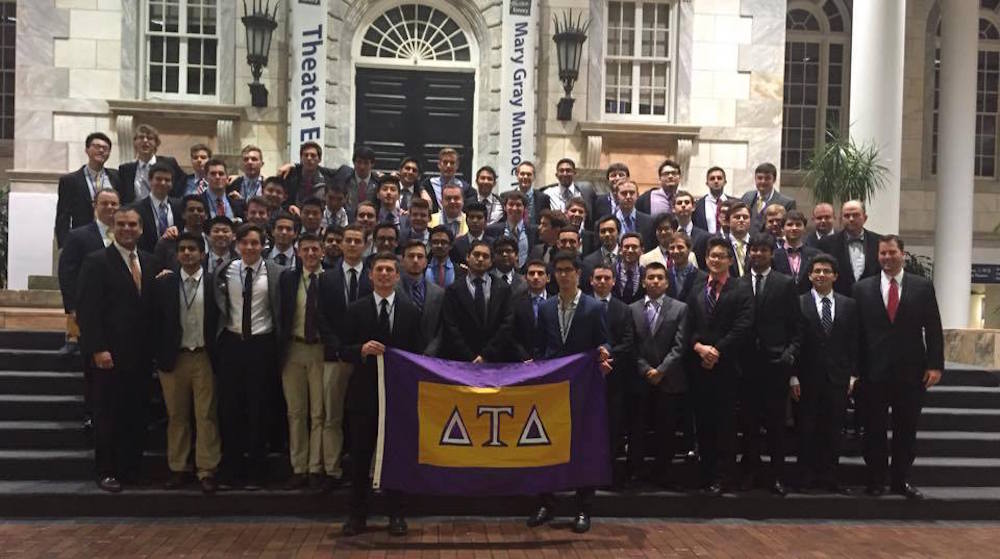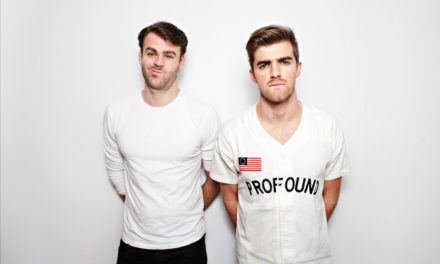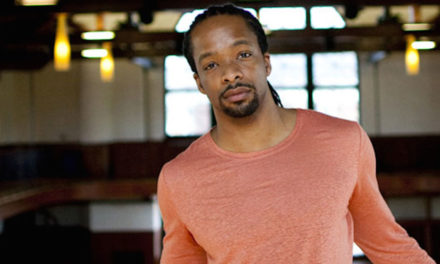A new chapter of Delta Tau Delta (DTD), the newest fraternity colony in the Interfraternity Council (IFC), has amassed 64 members and hopes to have its own house next year, according to members of the fraternity. DTD plans to hold its first meeting next week.
Comparatively, DTD has gained larger amounts of members more quickly than other new fraternities at Emory.
By late November 2012 following its fall revamp that year, Chi Phi’s colony consisted of 26 members. (Editor’s Note: Student Life Editor Stephen Fowler is a founding member of DTD.)
The fraternity’s international headquarters suspended Emory’s chapter of DTD in 2008 due to a “steady decrease in membership, failure to submit paperwork for Emory’s Greek Life Advancement Program and the chapter’s low chance of becoming nationally accredited,” according to a 2008 article in the Wheel.
IFC member organizations voted on Sept. 22, 2014 to approve the fraternity’s return to campus, according to a September 2014 Wheel article.
Assistant Dean for Campus Life and Director of Sorority and Fraternity Life Marlon Gibson said he thought DTD would reestablish itself on Emory’s campus sooner, but that the chapter delayed its return “to make sure they had a very successful advisory board.”
According to Gibson, DTD now has 64 members, a grade point average of 3.5 and a solid connection to the city of Atlanta.
“DTD’s international president actually lives in Atlanta,” Gibson said. “One of the things that is really neat for the 64 people that we are initiating is that he does their initiation.”
Gibson added that the organization also has very few seniors, ensuring the longevity of the chapter.
“I got to know the entire leadership consultant team, and I think that they did a great job and they were very friendly and cordial throughout the entire process to all the people who came up to their little table in the DUC,” Gibson said.
“Yesterday it felt weird not seeing the table that had been there the whole month.”
He emphasized the importance of more unique chapters within IFC to serve the needs of students who are unable to find their niche among the current chapter options.
“[Students] just aren’t satisfied with some of our current chapters, and when new or refounded chapters come back to campus, there is an opportunity to create the experience that they have been looking for,” Gibson said.
Andrew Schreiner, a DTD leadership consultant, said he and three other such consultants mainly relied on referrals from professors and student leaders during the recruitment process.
“We’re looking for guys with strong academics, who are really involved on campus and who are still trying to find their niche,” Schreiner said. “We just have different values — I’m not saying we’re better or worse [than other IFC fraternities]. We’re just looking to build better men.”
College freshman and DTD President and founder Mike Bertram wrote in an email to the Wheel that he started the colony as an alternative to the common perception of IFC’s fraternity options.
“I did not want to associate myself with some of the negative stigmas of ‘frats,’ and I had heard many stories of hazing, for which I have zero tolerance,” Bertram wrote, adding that he did not attend fraternity recruitment in the fall or spring. “Delta Tau Delta has a strict no hazing policy, which is why I felt safe accepting my bid.”
Bertram wrote that an international chapter leadership consultant called him to see if he had any interest in the fraternity’s Emory chapter colony, Beta Epsilon.
“Knowing that my brother was part of this fraternity at the Ohio State University, I told him that I would swing by their table in the Coke Commons to listen to what Delta Tau Delta was all about,” Bertram wrote. He added that many of his close friends then participated in DTD recruitment, and that he liked the thought of “starting a new brand of fraternity.”
According to DTD Vice President and College freshman Eduardo Armenta, the leadership consultants began giving applications for executive positions once the chapter colony reached 50 members.
“The way we see it, so far we have a good set of people,” Armenta said. “They’re responsible, they take care of themselves.”
The reason for DTD’s rapid growth, Armenta said, could be a value system that differentiates it from other IFC chapters known for hazing and raucous parties.
“You want to base recruitment on values, like what people believe in, not so much social stuff,” he said. “Every fraternity is based on different values. For us, it’s mostly academics, philanthropy and reaching out to the community.”
After Bertram submitted his application to the DTD leadership consultants, who gave him a series of interviews, one of the consultants called and asked if Bertram would like to be President of DTD’s Beta Epsilon chapter, Bertram wrote.
Pritchett, the international chapter communications director, wrote that “now was the right time” for DTD to return to Emory’s campus.
“We first hope the fraternity we established will meet [to] ask [what are] the requirements necessary to [gain a] charter as an official chapter of DTD in a timely manner,” Pritchett wrote. “We also hope the fraternity will be a positive influence on the Emory community and provide young men with an opportunity to grow their leadership potential.”
Senior Staff Writer Brandon Fuhr and Staff Writer Ashley Marcus contributed reporting.
— By Asst. News Editor Lydia O’Neal
A College senior studying economics and French, Lydia O’Neal has written for The Morning Call, The Philadelphia Inquirer, Consumer Reports Magazine and USA Today College. She began writing for the News section during her freshman year and began illustrating for the Wheel in the spring of her junior year. Lydia is studying in Paris for the fall 2015 semester.






